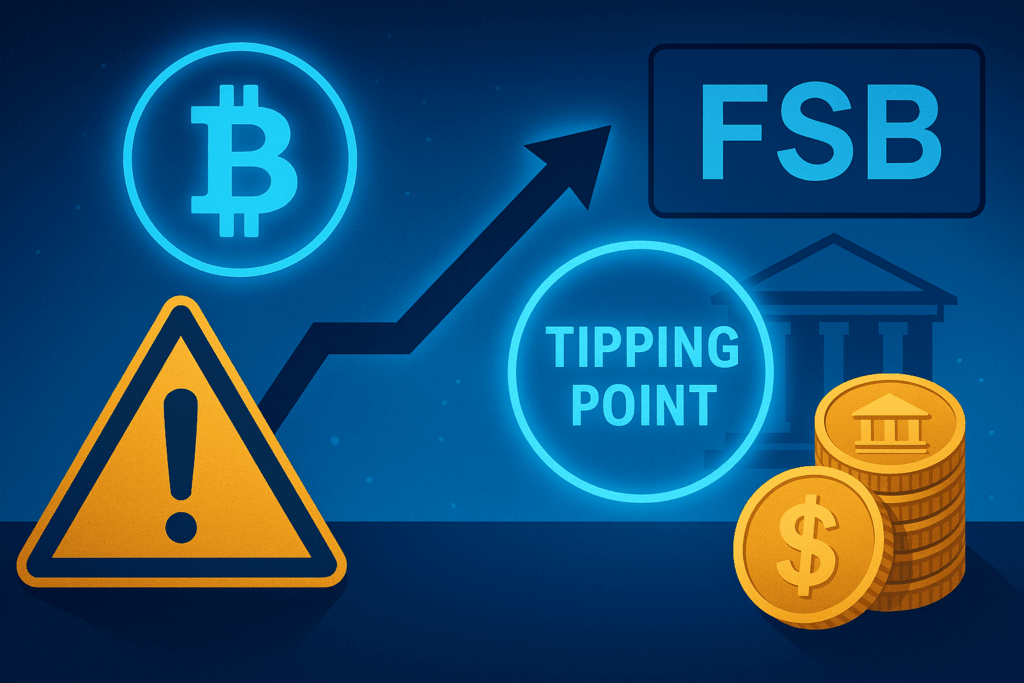The Financial Stability Board (FSB) has issued a fresh warning about the increasing risks posed by cryptocurrency’s expanding ties to traditional financial systems. Speaking in Madrid on Thursday, outgoing FSB Chair Klaas Knot cautioned that crypto’s growing entanglement with regulated finance could soon reach a critical threshold.
While crypto does not currently pose a systemic risk, we may be approaching a tipping point, said Knot, who also serves as president of the Dutch central bank, De Nederlandsche Bank.
Crypto ETFs, stablecoins lowering entry barriers
Another area of mounting concern is the stablecoin ecosystem. Knot emphasized that leading stablecoin issuers now hold substantial amounts of U.S. Treasurys—deepening the interconnection between decentralized finance and traditional capital markets. “That’s a segment that we clearly must monitor closely,” he said.
Newsletter
Get weekly updates on the newest crypto stories, case studies and tips right in your mailbox.
Stablecoins firmly embedded in financial infrastructure
Stablecoins—cryptocurrencies pegged to fiat currencies like the U.S. dollar—are increasingly becoming part of the financial mainstream. According to DeFiLlama, the total stablecoin market capitalization now exceeds $251 billion.
A recent study by the Bank for International Settlements (BIS) highlighted how these digital assets can influence macroeconomic variables. Using data from 2021 to 2025, the research found that inflows into stablecoins tend to lower short-term Treasury yields by 2 to 2.5 basis points within 10 days, while outflows raise yields by 6 to 8 basis points. The impact is concentrated in short-term securities, with negligible effects on longer-term bonds.
Among the most influential tokens, Tether’s USDT and Circle’s USDC were shown to have the strongest effects on yield dynamics—underscoring their influence in U.S. Treasury markets.
Knot will step down from his roles at the FSB and the Dutch central bank on June 30. He will be succeeded at the FSB by Bank of England Governor Andrew Bailey. A new appointee for the Dutch central bank has yet to be announced. His warning comes at a pivotal time for stablecoin regulation globally.
US senate moves forward with GENIUS Act
On Wednesday, the U.S. Senate voted 68–30 to advance the Guiding and Establishing National Innovation for U.S. Stablecoins (GENIUS) Act. The bill is a key legislative effort to create a comprehensive federal framework for the issuance of dollar-backed stablecoins.
The Senate’s approval for floor debate marks a significant step toward regulatory clarity in the digital asset space. If enacted, the GENIUS Act could strengthen the United States’ position in the competitive global stablecoin market by offering clearer compliance pathways and federal oversight.










